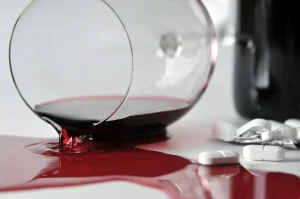
If you’re in recovery for SUD, here’s how you can try to make amends with loved ones whose trust was bruised during addiction. There are different opinions on when and how to disclose your recovery status. Some people believe it’s important to be completely upfront and let others know that you are a person in recovery during your very first encounter. Others take the position that it is best to see how the relationship develops and use that information to determine when to disclose.
Why Recovering Addicts Need to Develop Healthy Relationships
This magnifies the impact on relationships—there are more negative experiences and fewer positive experiences in relationships. To paraphrase the twelve-step literature, through the process of recovery you can transition from a life characterized by taking and being taken to one based on giving and being given. The first and most crucial step in mending relationships in recovery is maintaining sobriety.
Regaining Trust with Family
- But there’s often little direct attention to relationship difficulties in recovery programs unless it includes structured couple or family therapy.
- Repairing a strained relationship with a family member is an emotive process, where it takes more than just saying sorry to help an alcoholic child.
- If trust was absent due to addiction or deceit in past relationships, then expect it will take longer to build it again.
- Partners can include boundaries to discourage post-recovery relapses if this applies to their partner.
- Lying and manipulation are a few tools that addicts employ to achieve this goal.
- They may have let them down by neglecting shared responsibilities or lying about their substance abuse.
If you don’t, there could be some tension and frustration in the relationship, and it could possibly jeopardize your partner’s recovery. Setting healthy boundaries is crucial for maintaining relationships in recovery. Boundaries help manage expectations and ensure that your needs and the needs of your loved ones are met. Be clear about your limits, especially regarding situations that may threaten your sobriety, and respect the boundaries set by others. This can help to address conflicts before they become a bigger issue. Share your feelings, experiences, and challenges with your loved ones, and encourage them to do the same.
- Whether you have attended Alcoholics Anonymous or Al-Anon or participated in a group therapy session, share how it impacted you.
- For those who need less support, the companionship that relationships bring is just as important.
- However, recovery offers a chance to begin anew and build healthier connections.
- I wish there was a manual to help couples navigate this transition.
- As you continue to work on your recovery, your relationships are likely to improve over time.
Listen and Validate Feelings
Most people see how their relationships impact their quality of life, but sometimes this gets muddied when addiction is part of the picture. Some of these relationships can be helpful to us, some of them can be harmful to us in certain ways, and some can be both. We tend to focus mostly https://ecosoberhouse.com/ on romantic and family relationships, but other types of relationships can have a big impact on your recovery efforts as well. Focusing on relationship recovery intentionally throughout addiction recovery can improve quality of life, which will bolster addiction recovery efforts.
These may consist of demonstrating consistent reliability, healthily expressing emotions, listening with empathy, communicating honestly, and respecting boundaries. With dedication, expert guidance, and practical approaches, it’s possible to overcome unhealthy habits, repair relationships in recovery any harm, and rebuild the crucial building blocks of your relationships. The recovery journey can be difficult, but talking with your addicted loved one again is worth the struggle. Join me on this exploration to find hope, foster healing, and reignite connection.

This makes it easier to understand their actions and decisions. Being open could even help create strong friendships that last a lifetime. Additionally, it’s crucial to accept that relationships may evolve or change after rebuilding trust.

At this time, developing relationships that provide mutual support and connection is essential. Twelve-step programs and other mutual-aid resources help serve this vital purpose. Most people experience deep regret, guilt, and shame related to the harm their use of alcohol and other drugs has caused to the people they care about. Frequently, wanting to “fix” important relationships immediately is based on a desire to alleviate the emotional pain of having hurt loved ones. But pain—both emotional and physical—is an inevitable aspect of life.
- Through the experience of sharing your story, whether via performance or conversation, loneliness can begin to resolve as authentic connections are established and nurtured.
- Just as you are growing and changing in your recovery journey, your loved ones are also evolving.
- Be clear about your limits, especially regarding situations that may threaten your sobriety, and respect the boundaries set by others.
- Another thing addiction takes from women is their relationships.
- Now I’m not all about blaming our parents, I really believe they did the best job that they could, but the fact is some of us were raised in less than ideal family situations.
Another thing addiction takes from women is their relationships. It is not uncommon to find that relationships, after rehab, need to be mended. Unfortunately, building healthy relationships in recovery from addiction can be quite difficult. This May, Cigna released findings from their national survey that was meant to help us better understand loneliness in the United States.

The people who care for and support your loved one during recovery are crucial. Those healthy relationships provide emotional support, a safety net, and a sense of belonging. They can also help motivate your loved one to stay committed to recovery. When these bonds are built on empathy, understanding, and mutual respect, they can be incredibly powerful in preventing relapses. In addition, ongoing treatment can be helpful for developing coping and communication skills. Following an aftercare or relapse prevention plan will communicate to your loved one that you’re committed to maintaining a sober life.


